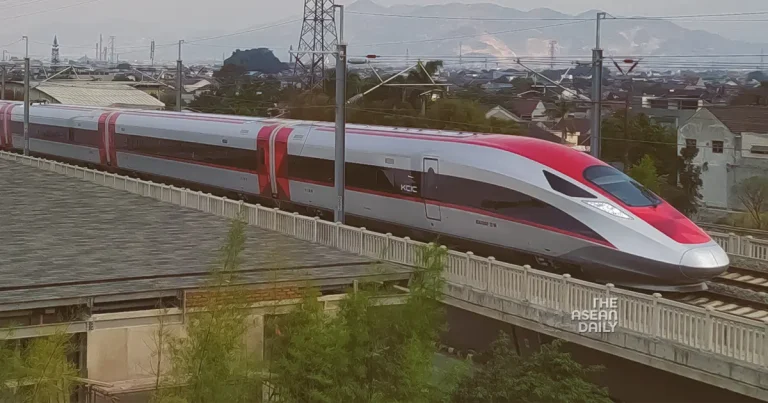8-4-2024 (JAKARTA) As Indonesia braces for its annual Eid mass exodus, citizens are turning to a new travel option this year to alleviate congestion: the Jakarta-Bandung high-speed rail.
More than 193 million people – comprising 70 per cent of Indonesia’s population – are anticipated to travel home, marking a 55 per cent increase from last year.
For numerous Indonesians, Eid is their sole opportunity to reunite with family, and many are choosing to utilise the high-speed train, dubbed Whoosh, for the first time.
Officials project a maximum capacity of around 300,000 passengers during the festive period, yet a Transportation Policy Agency survey suggests over 1.4 million travellers intend to utilise the train.
Whoosh, operational since October last year, traverses 142km in a maximum time of 46 minutes. The government plans to extend the route to Surabaya, Indonesia’s second-largest city, slashing travel time from 10 hours by car or regular train to a mere three-and-a-half hours.
Dini Rahmadani, a Jakarta resident, revealed to CNA her plans to embark on her inaugural Whoosh journey to Bandung, her hometown and Indonesia’s third-largest city.
“Usually we travel by car, but because we have Whoosh high-speed train now and to avoid the traffic jams, I am going to take Whoosh,” she said. “Last year, it took us eight hours to get there. Traffic was heavy, and we were tired from being on the road.”
The mass exodus, locally termed as “mudik” season, is a deeply rooted tradition, with millions returning to their hometowns to celebrate Eid and reunite with relatives. Trains remain the preferred mode of transport, according to a transport ministry survey, with over 20 per cent of travellers opting for rail travel.
Kereta Cepat Indonesia China (KCIC), the high-speed rail network operator, has increased trips during Eid and is assisting many first-time passengers like Dini in navigating boarding procedures.
Emir Monti, corporate communications manager at KCIC, explained the new ticketing system, which requires passengers to insert a card at the gate and wait for two to three minutes in the queue.
Meanwhile, authorities have added 344 additional trips from two stations in Central Jakarta to accommodate holiday demand for inter-city trains.
As bus ticket prices surge up to 35 per cent depending on the destination, travellers continue to opt for bus travel despite the increase. Siliwangi Antar Nusa Transport Company, for instance, raised ticket prices from East Jakarta to Pekanbaru in Riau province by 12 per cent.
Indonesian authorities remain committed to implementing effective policies to mitigate congestion in transport hubs and ensure travellers experience a safe and smooth journey home.




